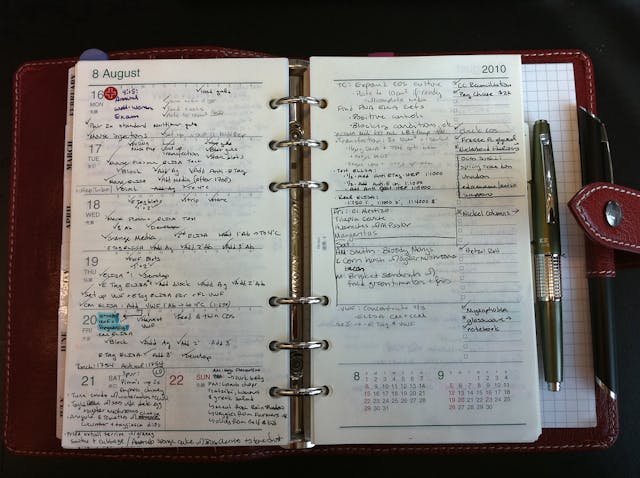
Emergencies Are Usually Self-Inflicted
An emergency in the business world is stressful. Many times we bring those emergencies on ourselves. It's time to put a stop to it!
Not too long ago, I was chatting on the phone with a guy I'm helping with a project. I told him I really enjoyed working with him because it didn't matter when I did the work, as long as I got it done. I've chosen to do most of my work on his project early in the mornings. He's usually not working until after I've finished working for him for the day. And yet, we're accomplishing goals and communicating effectively. But rarely do we respond to one another within an hour of receiving a message. I told him I thought that was pretty cool -- we're getting things done together and it's almost never in real time.
I said, "It's cool because nothing ever seems to be an emergency."
And he replied, "Emergencies are usually self-inflicted."
Everybody PANIC!
While I was on the phone, a message with undertones of panic came through. This was for a different project with different people and something had to be done. Something! Immediately!
I'll leave the details out of this story and just say that, from my perspective, it wasn't an emergency. It came with the attributes of everything that emergencies carry, but it wasn't an emergency.
Has this happened to you this week? I wouldn't be surprised if it has -- it's not uncommon.
Have you ever asked, "Why?"
Is it really necessary to panic?
What I'm getting at is this. There's a distinct difference between an unplanned event and an emergency. An emergency is an unplanned event that requires immediate action. An unplanned event is simply something you didn't plan for or expect.
Unplanned events are not (usually) emergencies. Most of the time, somewhere down the line someone transforms what would have be an unplanned event into an emergency.
Why?
In most cases, I see it as a reactionary illusion to the anticipation of the consequence for not immediately reacting to it.
What?
I mean, you persist the appearance that the scenario is an emergency simply to avoid the consequences of not doing that.
Why do you have to get that report to your boss before the end of the day? Because it will be inserted into the thing they have to give their boss by the end of the day? Because that person's boss forgot to ask for it before today, and they have to present it to the board tomorrow?
In situations like these, there is fear involved. And rightly so. The lack of an expected reaction in these cases (i.e. accepting that it is an emergency) can lead to someone being fired. We don't want that.
The problem, though, is that this behavior and this fear is contagious. It travels down the line. It's unhealthy for the people involved because it leads to stress and anxiety. It's unhealthy for the company because it's highly inefficient. The longer the line, chain of command, or project team, the more people there are who just dropped everything they were in the middle of accomplishing.
It needs to stop.
Moving Up The Line
For you, as employee with little power, you may work in fear that you could get fired if you say no in this type of scenario. Well I say, working in fear is no way to work. I also say if reaction comes down the line, then it's up to you to make proaction travel up the line. Suggest ideas to your boss for being more prepared. Get your words moving up the line.
Aside from being proactive, what does it really take to avoid these scenarios? The truth is that there is fault all around.
Stay Calm
When "an emergency" comes in, don't just immediately panic. Panic is also contagious. Try to remain calm. Consider what you can do right now. And consider the long-term effect of doing those things right now.
In my example, we had a client who discovered a (non-critical) bug on an application (that wasn't live) late at night. Sure, it would have looked great if we reacted and fixed the bug at that time.
But, wait a second. Would it have?
Because if we fix that (non-critical) bug on that app (that wasn't live) then we're also accepting two consequences.
- Sparing you the technical details, to do it quickly and late at night would likely mean cutting a few corners. It was far more likely that we'd introduce new errors if we reacted at that time, compared to if we waited until we were fresh (in the morning).
- We're showing the client that we're willing to respond to and work on non-critical bugs late at night. We're adjusting the expectation of when we're available to do work. It looks great. It looks like we're service-driven. It also looks like we're going to lose many more evenings in the coming months.
Plan Better
Unplanned events come from, well, not planning well enough. So, really, the best way to avoid unplanned events is to plan better.
No, you can't do that for "emergencies" that already exist. But you can use your negative experiences in your current projects to help you plan future projects better. Make post-mortem meetings mandatory. More importantly, make post-mortem meetings productive. Use a system like The Five Whys to find the root causes of your project issues, instead of keeping conversations on the surface.
Emergencies are stressful. Emergencies cause panic. Emergencies cause anxiety. And emergencies are, many times, avoidable. It's time to do what it takes to avoid them.


